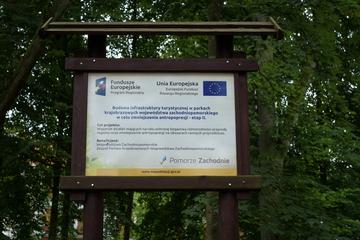
The European Commission celebrated 30 years since the creation of the European Cohesion Fund, taking the opportunity to take stock of the achievements of this instrument
In a press release dated 3 April, the Commission announced the celebrations for the 30th year of operation of the Cohesion Fund, one of the lines of financing of the EU's cohesion policies (the main one in support of the latter is, for example, ERDF which in 2021-2027 made 200 billion Euros available).
The Cohesion Fund was established in 1993 with the aim of strengthening the territorial and economic cohesion of the European Union while promoting sustainable development. It was introduced as part of the Maastricht Treaty.
The Commission was particularly keen to highligth the substantial investments that the fund has made available for EU countries. In fact, 179 billion Euros have been allocated to the fund during its first 30 years of existence.
Since its creation, the funds allocated have more than tripled. In the first financial period 1994-1999, the total amount was 18 billion Euros, then, with the 2004 enlargement, the total increased up to 61,4 billion Euros for the 2014-2020 financial period.
For the current financial period (2021-2027), 48.03 billion Euros have been made available, almost 40% of which will be allocated to projects supporting energy transition and environmental protection.
It is important to specify that the Fund provides financing only to member countries whose Gross National Income (GNI) per capita is less than 90% of the EU average. Among the 15 beneficiary countries in the 2014-2020 financial period, there are some from the Balkan-Carpathian area, including Bulgaria, Romania, Greece, Slovenia, Slovakia, and Croatia.
In the press release, the Commission recalls some of the most emblematic projects financed by the Fund, including the majestic Vasco da Gama bridge in Lisbon, completed in 1998, which remains the longest bridge in Europe.
These projects also include the metros of important European capitals, such as Warsaw, Bucharest, Budapest, Sofia, and Prague.
The Fund has played a key role in improving safety and environmental protection, for example, subsidising wastewater treatment facilities in Greece and plants to reduce the risk of floods in Hungary.
This content is published in the context of the "Work4Future" project co-financed by the European Union (EU). The EU is in no way responsible for the information or views expressed within the framework of the project. The responsibility for the contents lies solely with OBC Transeuropa. Go to the "Work4Future"

 30 years of the Cohesion Fund
30 years of the Cohesion Fund



 All the contents on the Osservatorio Balcani e Caucaso website are distributed with a
All the contents on the Osservatorio Balcani e Caucaso website are distributed with a  To Top
To Top